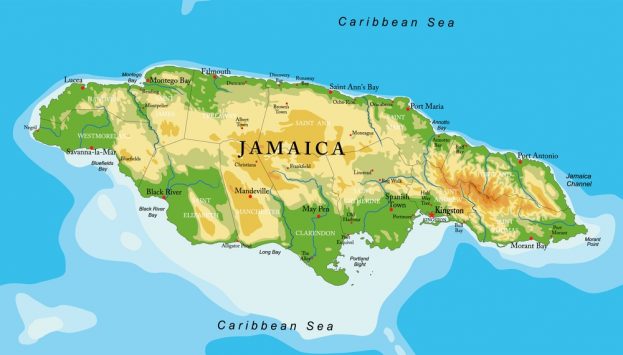Hugh Shearer had won the leadership of the Jamaica Labour Party (JLP) by one vote. Now his tenure as prime minister was being weakened and sullied by colleagues anxious to wrest the position from him, or at least to succeed him. Principal among these were his Trade and Industry Minister Robert Lightbourne, his Housing Minister Wilton Hill, and his Finance Minister Edward Seaga — the most powerful ministers in his Cabinet.
Their not so private personal aspirations and activities led inevitably to disunity in the party and Shearer found himself sitting uncomfortably on a powder keg.
And then there were the strikes, committed to everlasting memory in the swiftly popular 1968 song by The Ethiopians, Everything Crash. Everybody, it seemed, had gone on strike.
Firemen strike,
Watermen strike,
Telephone Company too,
Down to the policemen too…
Wha’ gone bad a mawnin’
Cyaan go good a evenin’
Oh, Oh-Oh…
Through song, the people were beginning to give voice to their thoughts and observations, thoughts and observations that had difficulty making their way into the mainstream media.
These could not have been happy days for Prime Minister Shearer. It must have been a particularly bitter irony for the trade unionist prime minister to see so many groups striking, in effect, against him. With steady foreign exchange inflows from the building of three bauxite plants and early development of the bauxite industry, plus the extensive school-building programme, he had presided over the most productive years of the Jamaican economy.
But squabbles, strikes and scandals had paralysed his effectiveness. And yet, long before he died on July 5, 2004, he would have had the satisfaction of knowing that it was his plan that had opened doors for many thousands of children in the rural areas and brought greater equity to education in Jamaica.
Meanwhile, the Shearer-led JLP campaign droned on aimlessly until, as PNP strategists were to say later, about three weeks before the election when Seaga was allowed to take it over and it sprang new life.
We felt his hand, they said.
Nevertheless, Michael Manley’s People’s National Party (PNP) won what was then the biggest landslide in Jamaica’s electoral history, and while it may have been eclipsed by the results of the 1980 election won by Seaga’s JLP, there is still nothing in Jamaica’s political history to compare with the three solid days of public euphoria and thanksgiving — March 1 to 3, 1972 — with which people all over the island celebrated the end of the Shearer Government. Thousands thronged the streets of every major town.
Although Bustamante had quietly groomed him for leadership, Shearer had never sought the leadership of the party. Disgusted by the continuing squabbling, desertions and in-fighting, he threw off the shackles of leadership with the declaration that “If dem want it, dem can take it” and retired to the serene life he had always preferred.
With Lightbourne gone to form his own party, the contest was now set up between Wilton Hill and Seaga who quickly cut his “resignation” short and grabbed the leadership. When Seaga won the 1980 elections, Shearer was returned to his old post of foreign minister, a position in which he seemed very comfortable and did well.
As Prime Minister, Shearer may be said to have focussed on one thing — uplifting people. This manifested itself in his efforts with education, his continuing efforts to assist people who needed help and to do this by applying the philosophy of Alexander Bustamante, the man who was his mentor for so many years. A frequent tack of his, especially from 1980 on, was to list Jamaica’s achievements under the JLP and intone after each one the words ‘Built by Labour’, the play on the word “labour” being exactly what Bustamante had applied for years in his successful effort to keep the labouring class cleaving to the Jamaica Labour Party.
It was a ploy remembered by Professor Rex Nettleford, Vice-Chancellor of the University of the West Indies, as he gave the eulogy at Shearer’s funeral on July 18, 2004.
Himself a trade union educator, Nettleford remembered Shearer as a man who “carried the mantle of concern for those who labour in Jamaica and has worked assiduously for all of 50 years in their interest”. He observed that Shearer contributed significantly to the improvement in the quality of life of the ordinary Jamaican man and woman against the ancestral afflictions of the exploitation of labour and the denigration of the working class. He and his comrade in arms, the late Michael Manley, are credited with achieving substantial gains in the areas of salaries and allowances, pension rights, improved working hours, maternity leave and fringe benefits covering health and education and general improvement in working conditions at the workplace from the early 1950s to the late 1970s.
Then, in salute, he made the ‘built-by-labour’ reference. “If Jamaica has been built by labour, then Hugh Lawson Shearer has been one of its most skilled contractors,” he said.
But then Nettleford struck a note of deep and profound wistfulness with an allusion to a time long past, a time of simpler pleasures, a time when life was, by comparison, serene. It was a note that had been searing the psyche as Jamaicans were called on to remember Shearer and his times. It was a note that Nettleford now articulated for them, using Shearer’s own words in recall.
Shearer, he said, had “a distaste for disorder” and had said, “Jamaica did not achieve nationhood through the use of bullets, and we do not intend to destroy our young nation by bullets, bombs or barbarism. The gun is not the answer.”
True, Shearer would, on occasion, take some union toughs with him on his campaigns in Clarendon. And there was the story of the time he got angry with Sabu, the famous motorcycle cop. But the gun frenzy, with its resultant terror and spiralling murder rates, that began strangling Jamaica from 1975 — the year after Shearer quit the JLP leadership — was most definitely alien to his time as Prime Minister.
He said, however, that his death had left behind “a million dollar question for his legatees to answer: ‘Where do we go from here and how are you going to row the boat?’”
In his sermon, the Rev Dr Horace Russell, who returned from his base in Pennsylvania, USA for the service, likened Shearer to the disciple Andrew who, he said, learnt “quite early” to distinguish between power and authority. Shearer realised that his success was not for himself alone but to be shared with others.
In his tribute, Prime Minister Patterson said that Shearer’s abiding legacy was his humanity, which he had bequeathed to the nation “and to generations who will be inspired by his life”.
He brought civility to political life and to trade unionism and in negotiations had the knack of knowing how to disagree, agreeably. He was undoubtedly one of the great leaders in post-independent Caribbean public life and will be greatly missed.
Over the years, Shearer never gave up his connections with the Bustamante Industrial Trade Union. Similarly he never abandoned the struggle for workers’ rights, even outside Jamaica. Nor did he ever depart from the traits of native love and concern for his people. A man of unfailing humility, he always looked out for the working people and never held a grudge.
One legend has it that he never failed after any luncheon or dinner at a hotel, to go back into the kitchen and greet and thank the workers before he left. And so, despite the vicissitudes of his brief tenure as prime minister, his personal deportment and his love for his people in turn made him one of the most loved and respected figures in Jamaican public life.
The essential question of life is found in the Gospel according to St. Mark, verse 36: “For what shall it profit a man if he shall gain the whole world and lose his own soul?”
Hugh Shearer did not gain the world; he never tried to. In a life replete with instances of helping the helpless and filling the needs of the needy, a life in which he never sought the trappings of power, and threw them off easily when he had to, Hugh Shearer answered that question clearly.



